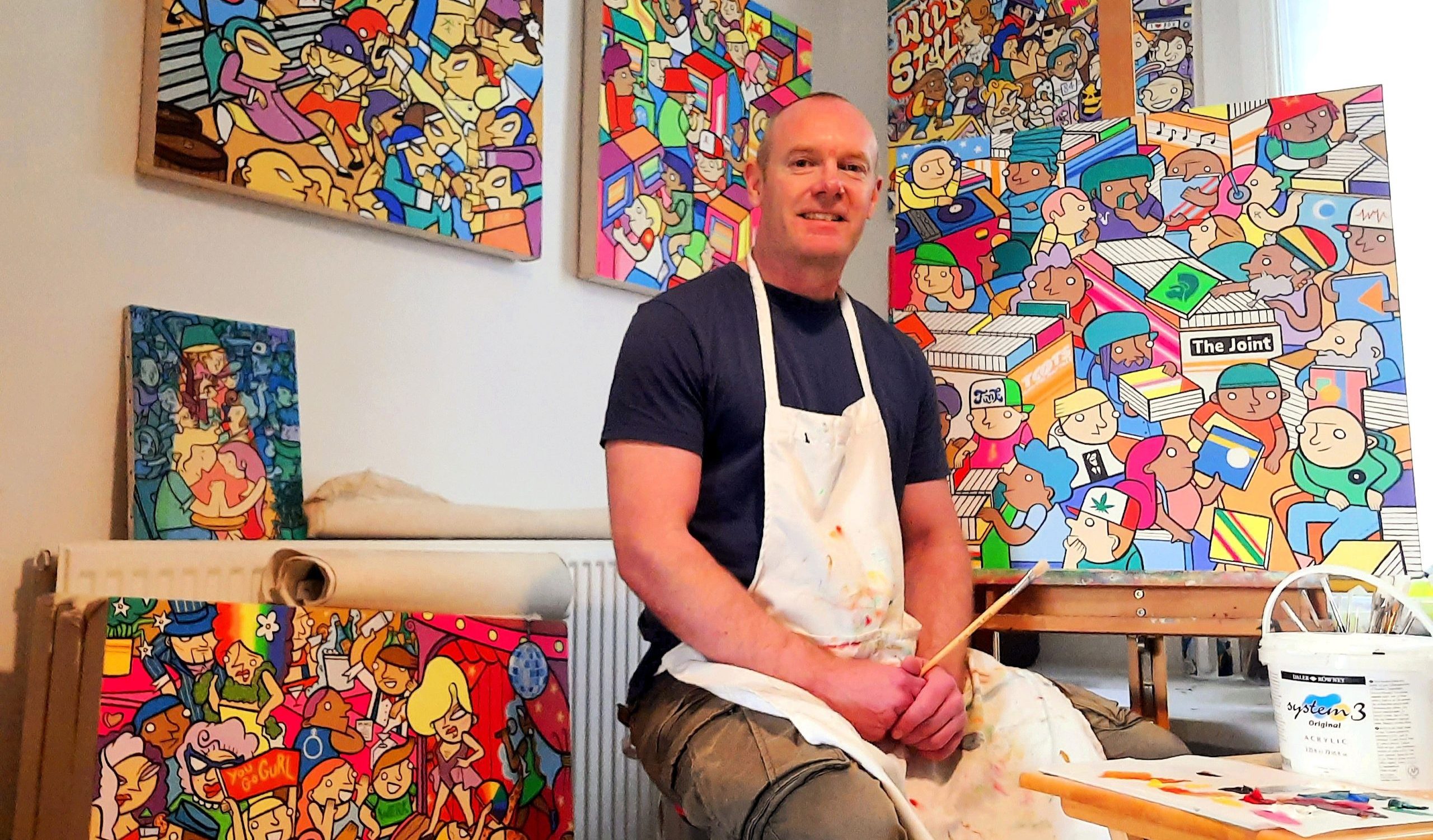- Structure and shape can be the building blocks of any great work of art, however the composition does not always have to be representational. :
Our Head of Art Luke Baker recently sat down with Little Van Gogh artist Darren Baxter to discuss the importance of finding your own unique artistic voice and how he has purposely stayed consistent with his style and concept.
Where do you find inspiration?
From whatever is rattling around my brain at the time, be it a book, movie, a trip away or even a nostalgic memory. I worked for many years in a school art department that had many exceptionally gifted students which was constantly inspiring and I have also recently moved to Hastings which has a hugely supportive and vibrant art scene so being in such a creative place keeps the creative juices flowing.
How has your practice changed over time?
My paintings have stayed consistent for over 20 years! Even down to the size and I enjoy the continuity my work has. When I was at college I was always comfortable with my technical abilities but didn’t have an artistic voice so once I found my niche it was full steam ahead with a style that I’m refining and trying to perfect. I learn something from each painting and try to incorporate those lessons into the next with the ambition that my next one will be my signature piece!
Who are your biggest artistic influences?
It’s clear that my biggest influences are from when I first picked up a pencil and was inspired by the comics that I used to copy. I felt obliged to be influenced by 19th Century western art whilst studying and it took a while for the penny to drop that I was allowed to be influenced by graffiti or a newspaper caricaturist. I still look at the work in the Asterix books and marvel at the artistic problem solving.

‘Amazing Fantasy 15’

‘Tribeca Rooftop Cocktails’
What’s the purpose or goal of your work?
To scratch a creative itch. I paint with the sole intention of producing a piece of work that I enjoy looking at.
Does creating art help you in any other areas of your life?
On a practical level it helps with discipline because of the amount of time required to complete a painting (upwards of 40 hours). It is also fairly meticulous so requires a lot of concentration but mostly it’s an immense source of pride. No matter what else is going on in life I can always have confidence in my artwork. It’s hugely satisfying completing a vibrant painting that started as a blank canvas. To then be able to exhibit or even be commissioned is a thrill
What’s the best piece of advice you have ever been given?
I can’t recall any particular advice that I’ve followed, I’ve always stubbornly listened to my own instincts, rightly or wrongly. However I do remember having the full support and encouragement of my parents when I was younger when perhaps many others are guided towards a more realistic career path and for that I’m eternally grateful.

